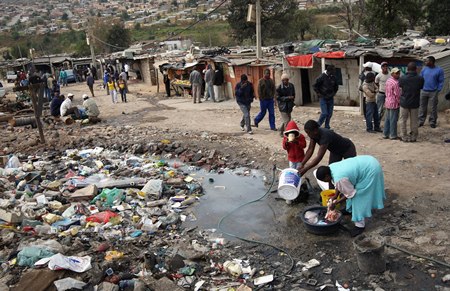Stressors effecting children around the world
There are many different stressors world wide that effect different groups of children from
different economically sectors. It is no not only the poorer children that are effected by
stressors due to their economical situation but also children that fall pray to chaos or violence
within their family unit. am fortunate enough to say that I did not experience any major
stressors growing up, but I did live in a county where there were many children less fortunate
than myself. Growing up In South Africa in the late 70’s and 80’s was a very different experience to what it
would be now. The law of apartheid was rife and black people had little to no rights.
They were severely discriminated against and unfairly treated. Children did not have right to
education or other basic rights that the white children received. This absurd ruling led to
major poverty and an uneducated generation of people, suffering to survive their circumstances.
My father, a karate instructor, was very involved with the battle against apartheid and didn’t
see color or race as something that should be differentiated. He strove to have people of all
and every race practicing karate. He was passionate in his conviction and this led him to later
being under house arrest for breaking the rules of apartheid. I feel blessed to have been
bought up in a family where my father made a difference in a time where there was so much
hatred and so much discrimination. The children of these impoverished and underprivileged
families would have suffered a lot from their living conditions they would have endured
malnutrition and poor health due to bad living conditions. These people had a great sense of
traditions and culture even within these boundaries, this was a great savior to their people and
their families. The children were loved and cared for by not only their families but their
neighbors and other people in the community. They came together and stood together.
different economically sectors. It is no not only the poorer children that are effected by
stressors due to their economical situation but also children that fall pray to chaos or violence
within their family unit. am fortunate enough to say that I did not experience any major
stressors growing up, but I did live in a county where there were many children less fortunate
than myself. Growing up In South Africa in the late 70’s and 80’s was a very different experience to what it
would be now. The law of apartheid was rife and black people had little to no rights.
They were severely discriminated against and unfairly treated. Children did not have right to
education or other basic rights that the white children received. This absurd ruling led to
major poverty and an uneducated generation of people, suffering to survive their circumstances.
My father, a karate instructor, was very involved with the battle against apartheid and didn’t
see color or race as something that should be differentiated. He strove to have people of all
and every race practicing karate. He was passionate in his conviction and this led him to later
being under house arrest for breaking the rules of apartheid. I feel blessed to have been
bought up in a family where my father made a difference in a time where there was so much
hatred and so much discrimination. The children of these impoverished and underprivileged
families would have suffered a lot from their living conditions they would have endured
malnutrition and poor health due to bad living conditions. These people had a great sense of
traditions and culture even within these boundaries, this was a great savior to their people and
their families. The children were loved and cared for by not only their families but their
neighbors and other people in the community. They came together and stood together.
With poverty and racism come violence and these children were no exception to that.
Many witnessed things that no child should every be a part of, and this lead to many grown up
criminals. When thinking about the consequences and the effects on their bio-social, cognitive and psychosocial development, one can clearly see that they would have had
major disadvantages growing up with no access to education and little access to a clean and
safe living environment. With little to no education you can imagine that their cognitive
development was effected and with their poor diet and threat of disease they would have had
major effects on the development on a whole. Developmentalists have noted that the
consequences of malnutrition and poverty have noticeable intellectual effects.
Many witnessed things that no child should every be a part of, and this lead to many grown up
criminals. When thinking about the consequences and the effects on their bio-social, cognitive and psychosocial development, one can clearly see that they would have had
major disadvantages growing up with no access to education and little access to a clean and
safe living environment. With little to no education you can imagine that their cognitive
development was effected and with their poor diet and threat of disease they would have had
major effects on the development on a whole. Developmentalists have noted that the
consequences of malnutrition and poverty have noticeable intellectual effects.
I am pleased to say that South Africa has come a long way, but sad to report that their are still
many children that are not getting the basic needs that they should be getting. It will take a
long time to undo the damage of the past.

many children that are not getting the basic needs that they should be getting. It will take a
long time to undo the damage of the past.

References:
Berger, K. S. (2015). The developing person through childhood (7th ed.). New York, NY: Worth Publishers.
